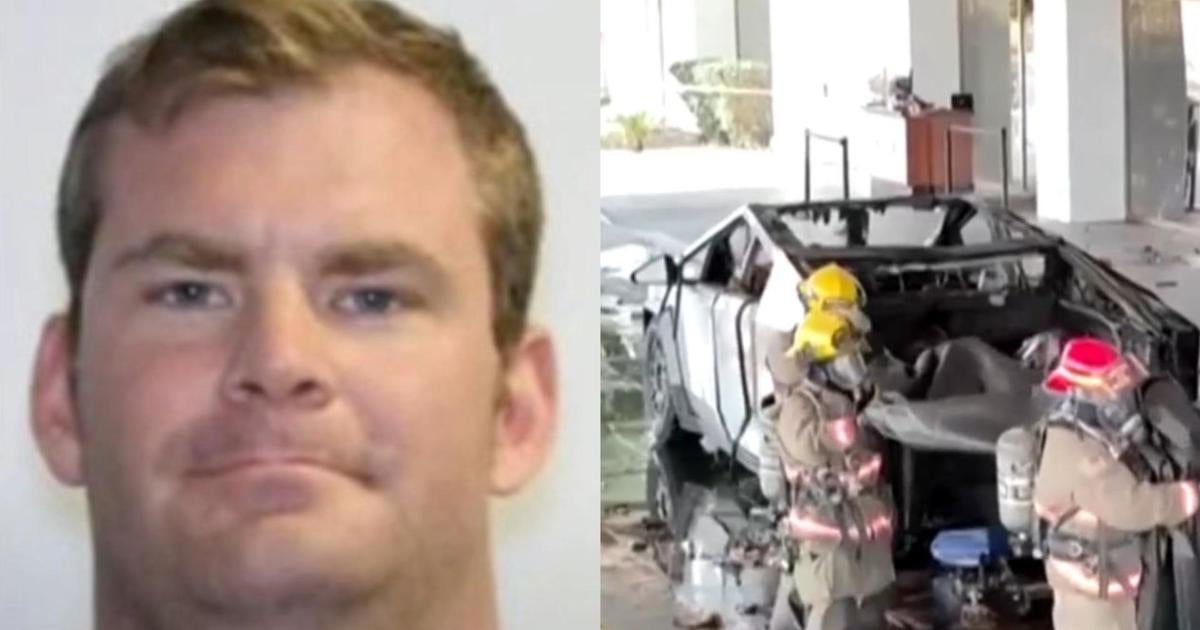The Tragic Explosion: Unraveling the Mystery Behind the Las Vegas Tesla Cybertruck Bombing
Prepare to be stunned! A shocking incident involving a Tesla Cybertruck explosion at the Trump International Hotel in Las Vegas has sent ripples of shockwaves throughout the nation. The perpetrator, decorated U.S. Army Special Forces Master Sgt. Matthew Livelsberger, left behind a trail of unanswered questions, shrouded in secrecy and personal struggles. His actions, initially baffling, are now slowly being illuminated, painting a tragic picture of a soldier grappling with unseen wounds of war.
The Soldier's Secret Struggle: Unseen Scars of War
Livelsberger's life, before the catastrophic event, appears to have been one of dedicated service to his country. But beneath the surface of military success, a silent battle raged. Reports suggest he suffered a traumatic brain injury (TBI) during his Middle East deployment. The invisible injuries of war often go unseen, leaving a devastating wake. His ex-girlfriend Alicia Arritt speaks candidly of his struggles, including the mental health challenges such injuries can trigger. Arritt's firsthand account sheds light on Livelsberger's difficulty concentrating, brain fog, and the guilt that gnawed at his conscience due to civilian casualties potentially stemming from his actions in combat.
The Burden of the Battlefield: TBI and Mental Health
The silent epidemic of TBI amongst military personnel and its connection to PTSD is terrifyingly real. Numerous studies, including those conducted by the National Center for PTSD, illuminate the extent of this crisis. High rates of depression, post-traumatic stress disorder, and other mental health issues plague those who have served, a stark consequence of the physical and emotional trauma endured in the line of duty. Livelsberger’s case unfortunately spotlights this, shedding light on the need for comprehensive mental health support systems that prevent soldiers from becoming casualties in a silent war.
The Day of Reckoning: Unveiling the Events Leading to the Bombing
The events leading up to the Tesla Cybertruck explosion are piecemeal, based on interviews and evidence gathering. Livelsberger’s cryptic email to Samuel Shoemate outlined grievances and warnings but provided no direct hint of what was about to happen. Texts exchanged with his ex-girlfriend are now examined by investigators, highlighting moments of normalcy alongside expressions of emotional burden. The timeline offers an incomplete narrative that raises more questions than answers, emphasizing the hidden nature of his mental deterioration before this shocking conclusion. While initially focusing on apparent coincidences with unrelated events, investigation has since narrowed to the understanding that Livelsberger planned and executed this tragic explosion alone.
Deciphering the Clues: Understanding Livelsberger’s Motives
Several avenues are being explored to decipher Livelsberger’s motivations. His email referenced civilian casualties resulting from an airstrike in Afghanistan. While his intentions remain uncertain, his actions underscore the significant pressure faced by members of the armed forces. This particular incident has renewed the discussion about the critical necessity of addressing the root causes and finding more ways to provide support for service members and their families struggling with the mental consequences of war, far exceeding previous discussions. While his former girlfriend states Livelsberger tried to overcome his mental challenges on his own, the event raises crucial discussions around improving mental health access and support within the armed forces.
The Aftermath: Reflecting on Loss and the Need for Change
The aftermath of Livelsberger's actions leaves a profound sense of loss. Not only has a soldier been lost, but the lives of his loved ones and those affected by his actions are deeply shaken. The tragedy underlines a crucial wake-up call for improving mental healthcare and support for veterans. His ex-girlfriend, Arritt, shares her personal experience and knowledge as a registered nurse, revealing how she perceived the symptoms of his TBI and her desire for him to obtain support. She expresses shock at his sudden change of character and emphasizes the kindness of his usual actions.
Honoring Livelsberger's Sacrifice: A Call for Action
Livelsberger's life highlights a pervasive problem in the US military. The need to change policies regarding treatment and awareness of mental health, especially traumatic brain injuries and PTSD amongst military personnel and veterans, remains of paramount importance. We owe it to our heroes returning home to ensure they receive the necessary help and support to lead full, healthy lives. By addressing the issues revealed in Livelsberger's tragic story, we can collectively prevent more similar incidents from taking place.
Take Away Points
- The tragic incident underscores the critical need for improved mental healthcare support for military personnel and veterans suffering from TBI and PTSD.
- Livelsberger’s actions highlight the devastating unseen consequences of war that stretch beyond the battlefield.
- We must recognize the burden of mental health issues and commit to ensuring effective support systems are in place to care for those who protect our freedom.
- Open discussions surrounding TBI, PTSD and the related challenges amongst veterans need continued dialogue to encourage open access and improve prevention.
- Further discussions about supporting soldiers overcoming these issues should be amplified through appropriate means.









